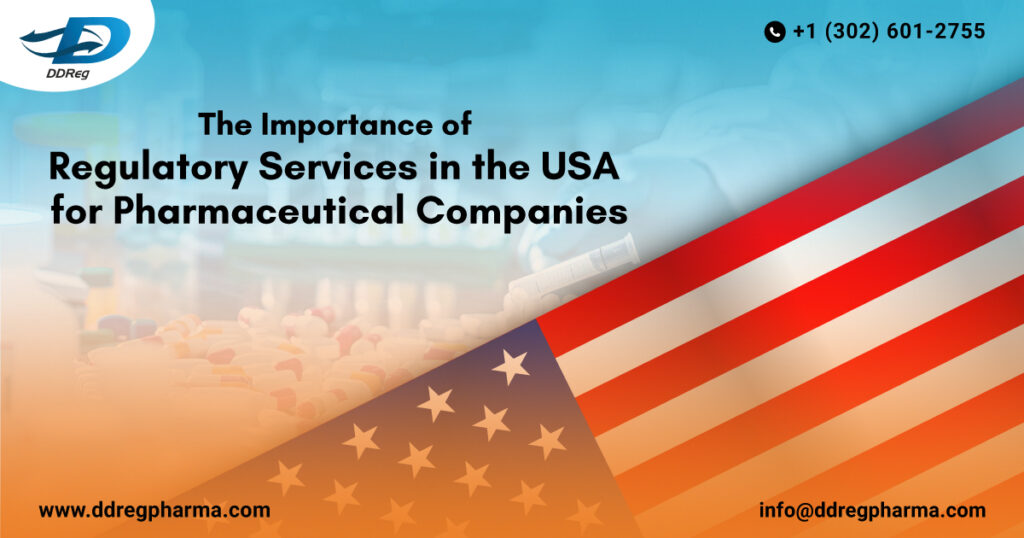
The pharmaceutical industry in the USA is one of the most heavily regulated sectors, ensuring that drugs and medical devices are safe and effective for public use. Regulatory affairs services play a critical role in this ecosystem, helping pharmaceutical companies navigate complex legal requirements, gain market approval, and maintain compliance throughout a product’s lifecycle. Here’s why regulatory services are indispensable for pharmaceutical companies in the USA.
Ensuring Compliance with FDA Regulations
The U.S. Food and Drug Administration (FDA) is the primary regulatory body overseeing the pharmaceutical industry. It sets stringent guidelines for the development, testing, approval, and marketing of drugs and medical device consulting services. Regulatory services help companies understand and comply with these regulations, ensuring that all necessary documentation is complete and submitted accurately.
Compliance with FDA regulations is non-negotiable. Failure to meet these standards can result in severe consequences, including fines, product recalls, and even criminal charges. Regulatory services in USA guide pharmaceutical companies through this complex landscape, helping them avoid costly mistakes and ensuring that their products meet all safety and efficacy standards.
Facilitating Drug Approval Process
Bringing a new drug to market involves a lengthy and rigorous approval process. This process includes preclinical studies, multiple phases of clinical trials, and extensive documentation. Regulatory affairs services are essential in managing this process efficiently.
These services assist in preparing and submitting Investigational New Drug (IND) applications, New Drug Applications (NDA), and Biologics License Applications (BLA). They ensure that all submissions are comprehensive and meet FDA requirements, thus reducing the risk of delays or rejections. By streamlining the approval process, regulatory strategy services help pharmaceutical companies bring their products to market faster, benefiting both the companies and the patients in need of new treatments.
Post-Market Surveillance and Compliance
The role of regulatory services doesn’t end once a drug is approved. Post-market surveillance is crucial to monitor the safety and effectiveness of drugs once they are available to the public. Regulatory services assist in designing and implementing post-market surveillance programs, ensuring that any adverse effects are promptly reported and addressed.
Moreover, pharmaceutical companies must comply with Good Manufacturing Practices (GMP) and other regulatory requirements throughout the production and distribution phases. Regulatory services provide ongoing support to ensure continued compliance, conducting regular audits, and addressing any issues that may arise. This proactive approach helps maintain the integrity of the pharmaceutical products and protects public health.
Navigating International Regulations
For pharmaceutical companies looking to expand globally, understanding and complying with international regulations is vital. Regulatory services are invaluable in navigating the diverse regulatory landscapes of different countries. They help companies prepare the necessary documentation, manage submissions to foreign regulatory bodies, and ensure compliance with international standards.
By leveraging regulatory services, pharmaceutical companies can streamline their global operations, reduce the risk of regulatory hurdles, and ensure a smoother entry into new markets. This global perspective is essential for companies aiming to reach a broader patient population and achieve sustainable growth.
Risk Management and Strategic Planning
Regulatory services play a crucial role in risk management and strategic planning. They help pharmaceutical companies identify potential regulatory risks early in the development process and develop strategies to mitigate these risks. This proactive approach allows companies to avoid costly delays and ensures that their projects stay on track.
In addition, regulatory solutions provide valuable insights into regulatory trends and changes in the regulatory environment. By staying informed about new regulations and industry developments, pharmaceutical companies can make more informed decisions and adjust their strategies accordingly. This foresight is essential for maintaining a competitive edge in the rapidly evolving pharmaceutical industry.
Conclusion
In the highly regulated pharmaceutical industry, regulatory services are indispensable. They ensure compliance with FDA regulations, facilitate the drug approval process, support post-market surveillance, navigate international regulations, and assist in risk management and strategic planning. By leveraging regulatory services, pharmaceutical companies can navigate the complex regulatory landscape more efficiently, bringing safe and effective products to market and ultimately improving public health.
The importance of regulatory services cannot be overstated. They are the backbone of a robust regulatory framework that ensures the safety and efficacy of pharmaceutical products. For pharmaceutical companies, investing in regulatory services is not just a legal necessity but a strategic imperative that drives success and sustainability in a competitive industry.
If you want more details, visit here: Regulatory Services in Australia, Medical Writing Services
and CMC Regulatory.